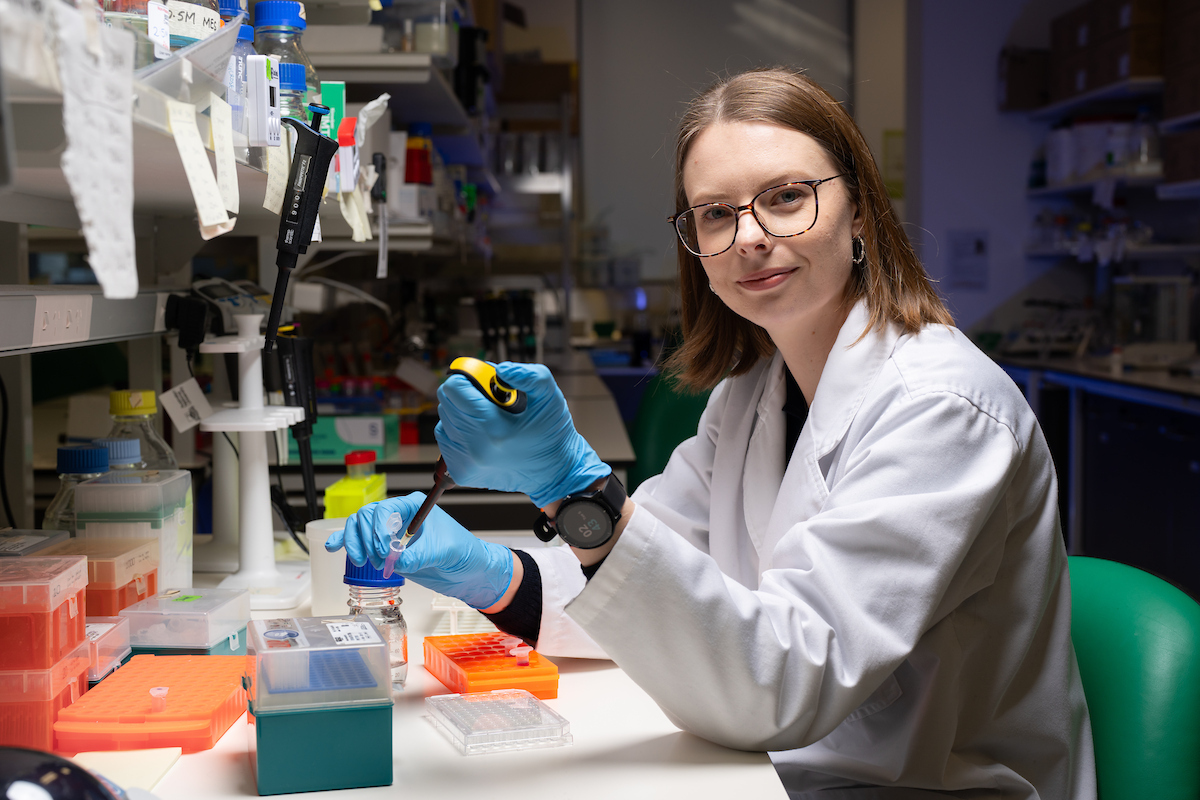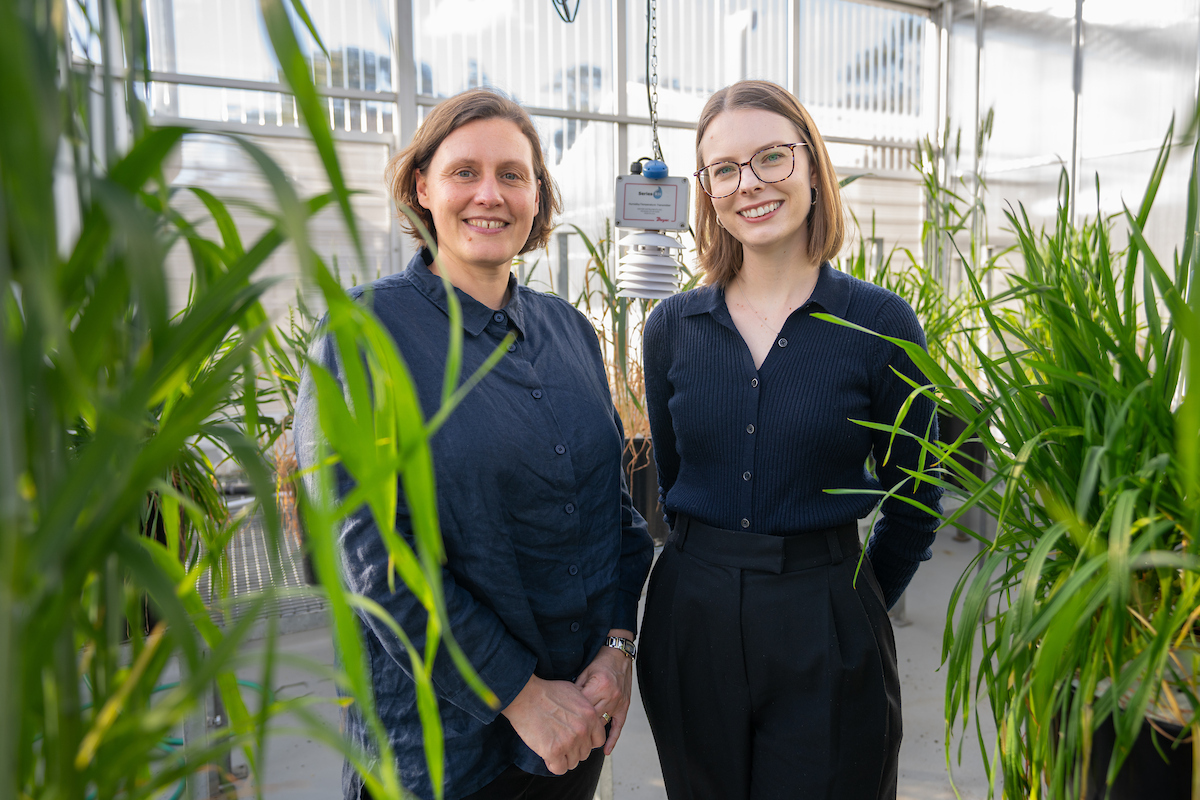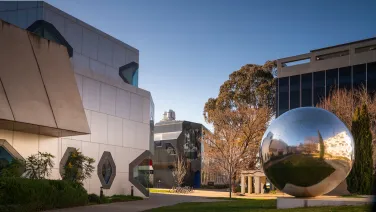ANU academic making waves in water innovation
By Natalia Burgess and Jess Fagan

Dr Samantha McGaughey is on a mission to demonstrate how science can help create a brighter, more sustainable future for us all.
Based at the ANU Research School of Biology, the plant scientist’s work focuses on cutting edge technology that can help turn wastewater “from a problem into an opportunity”.
She says her research team takes inspiration from nature.
“I may be biased, but plants are exceptional models for biotechnological innovation. We can learn a lot from their 3.8-billion-year-old processes,” McGaughey says.
“We’re working on using nature’s blueprint to develop new ways to safely and efficiently harvest clean water, nutrients, minerals and metals from wastewater.”
According to McGaughey, deciphering nature’s hidden language – the genes and proteins that drive plant life – can also help enhance crop performance and environmental sustainability.
Her work in this field has led to McGaughey being named the ACT Emerging Scientist of the Year for 2025.
“They say it takes a village to raise a child – I believe it also takes a village to raise a scientist. I wouldn’t be where I am today without the people who inspired, taught, encouraged and believed in me and in what I am trying to achieve,” she says.
“I hope to show the next generation of scientists in the ACT how nature can inspire and provide solutions to the critical global challenges we face.”

McGaughey says with climate change accelerating and water scarcity threatening communities worldwide, science and innovation are more important than ever.
“The scale and urgency of these challenges demand new thinking, scientific innovation, and a willingness to change,” she says.
“This means moving away from a linear economy – where resources are used and discarded – to a circular one, where all wastes are recycled or reused.”
She believes wastewater, rather than being a persistent problem, could become an important source of clean water and valuable nutrients, metals and minerals.
“Central to our work on this challenge are biological membranes. Membranes underpin all life: they act as selective barriers, controlling which molecules can move into and out of cells. By mimicking the selectivity of living cells, we can advance technology that allows us to recover valuable nutrients and clean water from waste streams.
Professor Caitlin Byrt – the head of McGaughey’s research group at ANU – says future generations will be able to efficiently recycle critical resources and avoid current waste and environmental damage associated with resource extraction industries because of McGaughey’s work.
“She is working directly with global industries to apply her technologies to addressing mining waste challenges, and she is training future generations of scientists, empowering them with the knowledge they will need to pioneer development of the next generation of sustainable resource management innovations,” Byrt says.
“Our team extend our thanks to industry collaborators from Rio Tinto for their support which has been pivotal in enabling us to develop innovative solutions for recovering valuable resources from industrial wastewater – laying the groundwork for a cleaner, circular future.”
McGaughey says it’s a “true honour” to receive the ACT Emerging Scientist of the Year Award.
“I’m grateful for the platform to share the incredible science I am privileged to pursue alongside a wonderful and passionate team,” she says.
The ACT Emerging Scientist of the Year Award celebrates up-and-coming scientists. Learn more about the Award here.
This article was first published in ANU Reporter.


